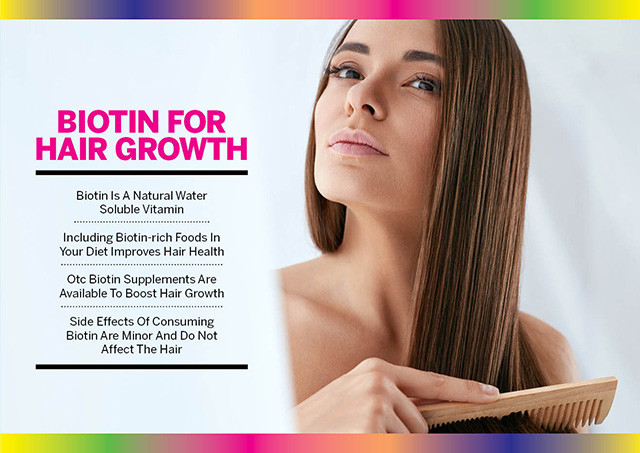Biotin is also known as vitamin B7, one of the water-soluble vitamins. It is one of the nutritional integrals taken for intervention purposes in having healthy hair, skin, and nails. However, most often, it has been found to be claimed by a miracle ingredient for supplements in hair growth. Is that really so? Let’s get into the science behind biotin and its efficacy in hair growth.

What is Biotin?
While biotin is a member of the vitamin B family, it participates in quite a wide range of metabolic processes that help turn your food into energy. It facilitates the creation of keratin, a protein that becomes the stuff your hair, skin, and nails are made of. Given its part in the creation of keratin, it is not surprising that biotin is turned to as an herbal supplement often to improve hair health.
The Link Between Biotin and Hair Growth
The symptoms of biotin deficiency vary from thinning of hair and brittle nails to skin rashes. Deficiency in biotin is, however, extremely rare, since adequate amounts are usually derived from a balanced diet. Rich sources of biotin include eggs, nuts and seeds, salmon, and leafy greens.
Indeed, biotin supplementation can improve hair health and reduce hair loss in cases where there is a deficiency of biotin. However, if the body obtains enough biotin through the diet, additional biotin from supplements does not have any significant benefit for hair growth.
Scientific Evidence on Biotin and Hair Growth
There is limited scientific evidence that biotin supplements grow hair in otherwise healthy individuals. Most of the studies on supplementation deal with persons having either a known or suspected biotin deficiency or having an underlying medical condition causing changes in their hair. In such people, supplementing them with biotin helps. However, it seems that when there is no deficiency, the benefits of supplements in growing hair are not well defined.
Small studies have reported biotin to promote hair growth in subjects with thinning hair, but these were variable quality and usually combined biotin with other vitamins and minerals.
When Might Biotin Help?
The following are ways in which biotin supplements can be of help:
Biotin Deficiency: If you are deficient in this compound, then supplements should restore your hair to health.
Medical Conditions: Certain medical conditions, such as alopecia, which results in loss of hair, may be treated by supplementation of biotin as part of a more comprehensive treatment.
Brittle Nails: It is also known that biotin improves the strength and thickness of brittle nails, which would be, at least indirectly, a gain in general health for hair and nails.
Since it’s water-soluble and excess is passed out through urine, biotin is generally regarded as safe, even at very large doses. Nonetheless, very high dosages may result in incorrect results on some laboratory tests, particularly hormone levels measurement tests and heart conditions diagnosis tests. It’s always wise to consult with a healthcare provider before starting any supplement regimen
Potential Side Effects of Biotin Supplements
While biotin has a critical role in hair health, it is highly doubtful that biotin supplementation can do any good in growing hair among people who are not deficient. If you are losing or thinning your hair, consider first—before resorting to supplements of biotin—genetic factors, diet, stress, and health conditions that could be their root cause
Conclusion: Is Biotin the Miracle Hair Growth Solution?
For most, a well-balanced diet that is rich in vitamins and minerals, containing biotin, goes a long way for good hair growth. If you feel that you might have a deficiency of biotin or have other hair problems, be sure to discuss this with your healthcare professional or dermatologist for advice and potential treatment.
